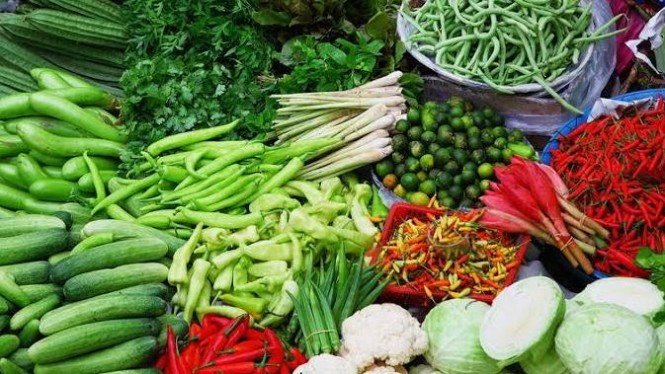Appreciating the Government’s Efforts to Anticipate the Food Crisis
By: Dwipa Airlangga)*
The Indonesian government continues to monitor the development of the Covid-19 pandemic and the Ukraine-Russia war has threatened food security and other global crises. This mitigation step needs to get appreciation and support from all parties so that the heaviest risks can be anticipated as well as possible.
The government’s vigilance in dealing with the food crisis should be given the highest appreciation because it has had a profound impact on various things. Not only to increase Indonesia’s independence regarding food security, but also to help the standard of living of the community, including ensuring that community nutrition will also be guaranteed.
Currently, Indonesia is really preparing in a big plan regarding efforts to be able to continue to survive in the midst of the threat of a global food crisis that has been conveyed by several world organizations. Therefore, the Government of Indonesia continues to encourage the diversification of food commodity crops even in various remote areas.
How not, because the World Food Agency (FAO) and the United Nations (UN) have warned the world that a global food crisis could soon happen. There have even been signs of this, such as a massive increase in prices for a number of commodities and foodstuffs recently.
For this reason, in following up on the warnings issued by the FAO and the United Nations, President Joko Widodo himself immediately intensified policies in the form of food diversification, one of which was the planting of sorghum in East Sumba Regency, East Nusa Tenggara.
The President stated that the effort to diversify food by planting several types of food commodities has the main objective so that Indonesia itself does not continue to depend on foreign countries and only on imported commodities. Of course, because of the threat of the global food crisis, finally, Indonesia must be able to have its own food crops that guarantee the availability of food for daily consumption.
Not only sorghum, but in the food diversification policy that is being intensified by the Government, there are other food commodity crops such as corn, rice, sago to wheat. The 7th President of the Republic of Indonesia stated that the existence of many choices or alternatives in Indonesia is very important to prevent dependence on other countries and dependence on only one commodity, namely rice.
Of course, by having many alternative food ingredients, it will make Indonesia less dependent on imports from foreign countries, especially corn and wheat, which are currently in very limited stock due to the Russo-Ukrainian war.
The strategy of planting sorghum that is being intensified in East Nusa Tenggara itself is carried out by continuing to expand the land for sorghum farming, which is indeed very capable of thriving in NTT. It is known that so far 60 hectares of sorghum land have been harvested with an average yield of 1 hectare capable of reaching 5 tons of sorghum.
Not only does it guarantee the availability of food in order to be able to survive against the global food crisis, but with this policy of diversifying the cultivation of sorghum, in fact the Government has also succeeded in raising the standard of living of the farmers. President Jokowi himself stated that sorghum farmers are able to benefit from the harvest of around Rp. 4 million per month. In addition, it is also automatically able to absorb some workers around NTT as well.
The food diversification policy by planting sorghum is also highly approved and appreciated by the Head of Research Center for Indonesian Policy Studies (CIPS) Felippa Ann Amanta because according to her, it will also play a role in improving the nutritional status of the Indonesian people. This is because Indonesia is not only facing the threat of a global food crisis, but also malnutrition, rising obesity rates, and increasing levels of micronutrient deficiencies.
This food diversification policy itself not only serves as a preparation for the threat of a global food crisis, but in fact is also able to help improve the standard of living of the local community, especially farmers and is also able to provide several jobs. With this food diversification, the risk of the threat of a food crisis can be minimized.
)* The author is a Banyumas Literacy activist
